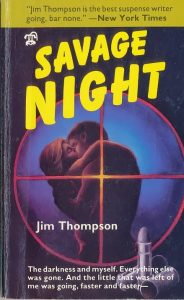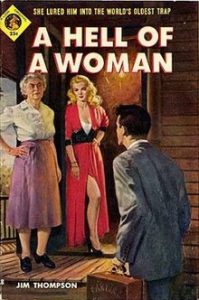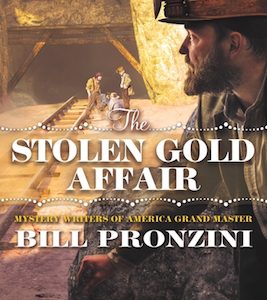They say everybody loves a happy ending, but as is usually the case, they are full of it. Noir is an existentially and essentially pessimistic genre, and thus its readers crave—nay, demand—dark, despairing endings. As the demon dog of crime fiction himself, James Ellroy, once put it: “The overarching and lasting appeal of noir is that it makes doom fun.”
Fans and obsessives of roman noir know that the more hardboiled a novel, the more brutal its finale is likely to be, and there is no shortage of classic novels that conclude with the literary equivalent of a kick to the balls or a knife in the ribs. As such, any list of the darkest endings in noir literature is certain to be incomplete, so consider this a mere primer. Not that you’re likely to feel too disappointed: after you’re finished reading any one of these mercilessly downbeat masterpieces, it’ll be all you can do to scrape yourself up off the floor. I don’t know about you, but that’s definitely my idea of fun.
Warning: This Entire List is Spoilers.
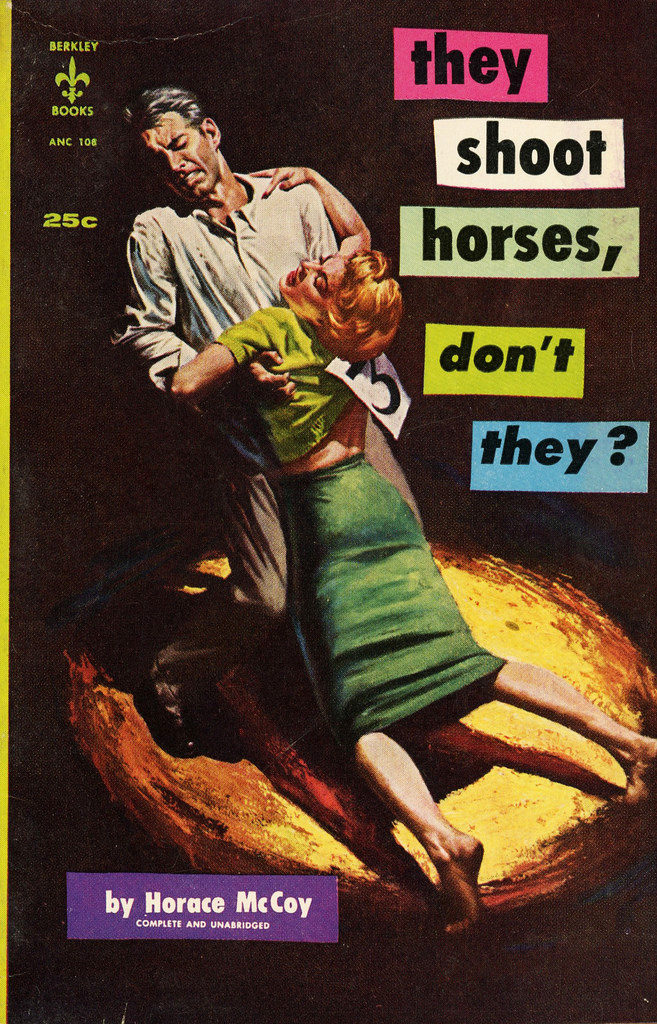
They Shoot Horses, Don’t They?, Horace McCoy
One of the most infamously bleak novels to come out of the Great Depression, Horace McCoy’s story charts the long, slow waltz towards death and damnation for a pair of partners competing in a grueling, non-stop dance marathon. We know from the outset that one of them has killed the other and is awaiting sentencing for murder. Ultimately, the murder is revealed to have been an act not of anger or jealousy, but mercy. Fitting then, if also ironic, that the closing summation as delivered by the trial’s presiding judge—whose questions and statements frequently cut into the narrator’s story in type that grows increasingly large, until it shrinks down to a barely discernible font at the end—are “And may God have mercy on your soul.”
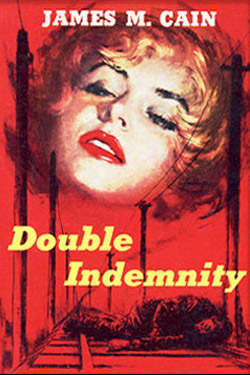
Double Indemnity, James M. Cain (1936)
While Billy Wilder’s classic film adaptation of James M. Cain’s equally classic noir novel sticks pretty close to the source material, it changes the original ending. In the movie, the central pair of murderous lovers—amoral life insurance salesman Walter Neff and suburban black widow Phyllis Dietrichson—turn on each other after their murder and inheritance scheme falls to pieces. Phillis is killed, but Walter survives, although it’s clear that he’s got a hot date with the gas chamber in his near future (an alternate ending actually depicted his execution, but Wilder opted to leave it out). That’s a plenty dark ending on its own, but it’s got nothing on the novel, wherein the duo forgoes a chance to escape together into Mexico on a chartered steamship, opting instead to throw themselves overboard and into the cold, black embrace of watery death.
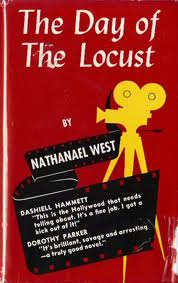
The Day of the Locust, Nathaniel West (1939)
Two of the three novels written and published by Nathaniel West during his tragically short lifetime—his seedy passion play Miss Lonelyhearts and the apocalyptic Hollywood satire The Day of the Locust—served as examples of what critic Harold Bloom referred to as the negative sublime. It was a tossup between the two for this spot, but ultimately, The Day of the Locust, which ends with one of the main characters stomping a child to death before being carried away in a spontaneous riot that feels like something from out the Book of Revelations, proved more transgressively shocking. Along with the aforementioned They Shoot Horses, Don’t They? West’s book stands as the most nightmarish account of the collective madness that reigned in Hollywood during its so-called Golden Age.
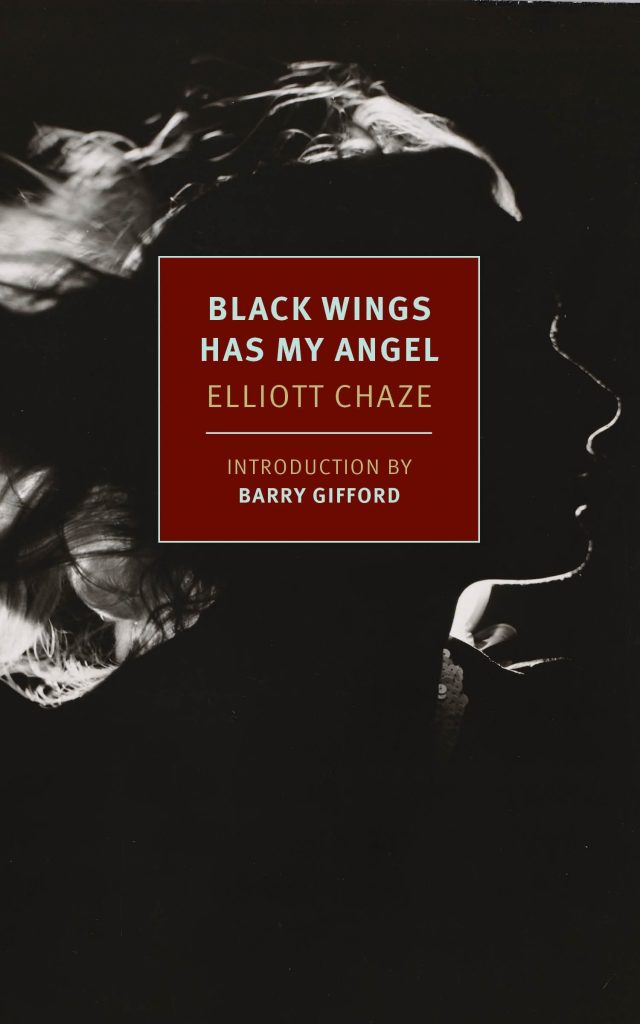
Black Wings Has My Angel, Elliott Chaze (1953)
Like Double Indemnity, Elliott Chaze’s Black Wings Has My Angel is a violent and disturbing tale of a low rent hustler and the femme fatale who both loves and despises him. In this story, a prison escapee and a high-class prostitute wanted by the New York authorities, meet by chance and team up to pull off a deadly armored car job. They pull off the job without a hitch, only to fall into pit of mutual madness after returning to the scene of their crime, which happens to be at an abandoned mineshaft high up in the Colorado mountains. What happens next makes literal their descent, with Chaze milking it for all of its black humor and horror.
Savage Night / A Hell of a Woman / The Getaway, Jim Thompson (1953/1954/1958)
Absolutely no one in the annals of pulp fiction wrote darker, meaner or weirder books than Jim Thompson. Even accounting for all the brutal violence, grimy sexual depravity and convincing portrayals of madness found throughout them, their grisly, often surreal endings have the visceral power to make even the most desensitized reader shudder and retch. As such, it was impossible to choose only one Thompson novel for this list, which is why he gets three slots.
The most infamous ending in Thompson’s oeuvre belongs to his popular heist/chase novel The Getaway, in which the central pair of bank robbing lovers manage to evade the law and their double-crossing partners and escape into the mythical Mexican safe haven known as El Rey. Once there, they discover the city is not the outlaw paradise they had been promised, but a totalitarian hell-on-earth in which the residents can only afford to live for so long before they are forced to literally feed off one another.
You’d think the ending of The Getaway is as nightmarish as noir gets, but for sheer horror, two earlier Thompson novels actually have it beat. The first is Savage Night, about a diminutive hitman who disguises himself as a small-town college student in order to kill a local mob rat. When he fails in his task, he is forced to flee to an abandoned farmhouse. He takes a young disabled girl from his previous boarding house with him, and soon begins to suspect that she is also an assassin in hiding. We’re convinced he’s gotten lost in delusion…right up until she ambushes him with an axe and takes him apart limb by limb.
The ending to A Hell of Woman, Thompson’s novel about murder and blackmail, is somehow even more gruesome than Savage Night—too gruesome, in fact, to go into detail here. And as if the sudden act of self-mutilation that concludes that novel isn’t nightmare inducing enough, it’s only one of two ultra-bleak endings that play out simultaneously, as Thompson—who never gets the credit he deserves as an experimental writer—splits the story’s reality in its mind-bending, gut-churning final pages.
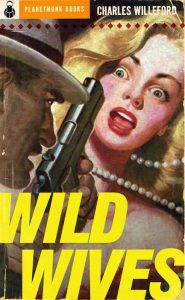
Wild Wives, Charles Willeford (1958)
If any mid-century crime writer could match Thompson when it came to cruel irony, it was Charles Willeford. Willeford takes the piss out of the classic private eye story in his slim novella Wild Wives by having his two-fisted flatfoot wriggle out of the murder for which he is partly responsible, only to take the fall for an unrelated sex killing of which he’s completely innocent. The final lines of the novel perfectly sum up Willeford’s cynical view of post-war America: “There isn’t any use to tell about the trial. It was in all the papers. The only defense I had was the fact that I was a good soldier during the war. My lawyer passed my medals around the jury box, and they were closely examined. They didn’t help a bit.”
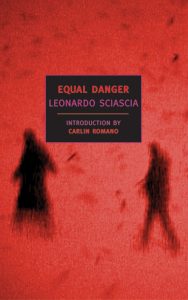
Equal Danger, Leonardo Sciascia (1971)
Throughout the charged decades of the 60s and 70s, Leonardo Sciascia published a number of existentialist procedural novels that captured the ratcheting violence and corruption enveloping his native Sicily. In Equal Danger, a brilliant detective uncovers a complex conspiracy behind a series of high-profile political assassinations, but before he can reveal it to the public, he’s murdered and made into a patsy. There’s no grace note to his demise nor any noble sacrifice. The hero loses, the bad guys win, the end. Although the novel is dealing with issue specific to Italy at the time, the same sense of futility could be found throughout mainstream American movies in the years that followed, such as Chinatown, Night Moves and especially The Parallax View. Truly, the Seventies were a golden age for nihilism and malaise.
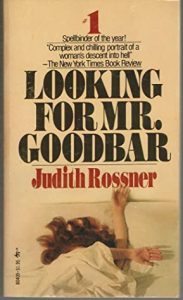
Looking for Mr. Goodbar, Judith Rossner (1975)
Judith Rossner’s account of the short life and horrible death of Theresa Dunn, a respectable city school teacher who would clandestinely cruise New York City dive bars looking for casual sex, opens with her killer confessing to her rape and murder and closes with her final terrified thoughts. In between, we are brought directly into Theresa’s life, both inner and outer, making the journey to the end all the more unbearable. In its 1975 review of the novel, The New York Times described Looking for Mr. Goodbar as “a stunning psychological study of a woman’s passive complicity in her own death.” Today, such description reeks of victim blaming, but it does capture the sense of brutal inevitability that haunts this devastating character study from the first page to the last.

Plan B, Chester Himes (1983)
Despite achieving some early critical acclaim for a pair of post-war black protest novels, Chester Himes languished in obscurity until he moved to France and tried his hand at detective fiction. His Harlem Cycle, about a pair of black New York City detectives named Coffin Ed Johnson and Grave Digger Jones, comprised an official 8-book run that’s still considered among the pinnacle of noir today. There also exists a notorious and little-read ninth novel, titled Plan B, that, while technically unfinished (Himes started it in the late sixties, but it was only published posthumously in 1983), lays out the ultimate fate of his gun-slinging gumshoes: after uncovering the mastermind behind a nation-wide black power uprising, Grave Digger Jones undergoes an instantaneous change of allegiance and murders his partner and lifelong best friend, Coffin Ed in the name of the revolution, only to be shot dead himself a second later. Himes’s Harlem novels were always more violent, surreal and hard-edged than other ongoing detective series (his heroic duo would just as soon pistol whip a suspect to death as they would read him or her their rights), so this apocalyptic finale feels as inevitable as it is sudden, while also reflecting the author’s own political reawakening during the most violent period of the civil rights era.
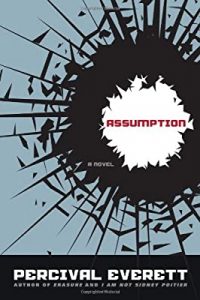
Assumption, Percival Everett (2011)
Percival Everett’s Assumption starts out as a traditional rural detective story not too dissimilar from, say, the Longmire series, before abruptly morphing into a modern day The Killer Inside Me at its terminus. It’s only at the very end that we discover the book’s protagonist, the intelligent, reliable and seemingly good-hearted Deputy Sheriff Ogden Walker, is in fact responsible for the series of heinous drug-related killings he’s been investigating all along. This isn’t some cheap last-minute twist—all throughout, Everett has dropped a number of clues alerting us that something is off with his hero. Still, the revelation hits us like the rifle blast that finally cuts Ogden down in the closing lines of the book. Assumption isn’t merely a riveting page turner, it’s also a book-length reminder of the old adage about what happens when you assume.


